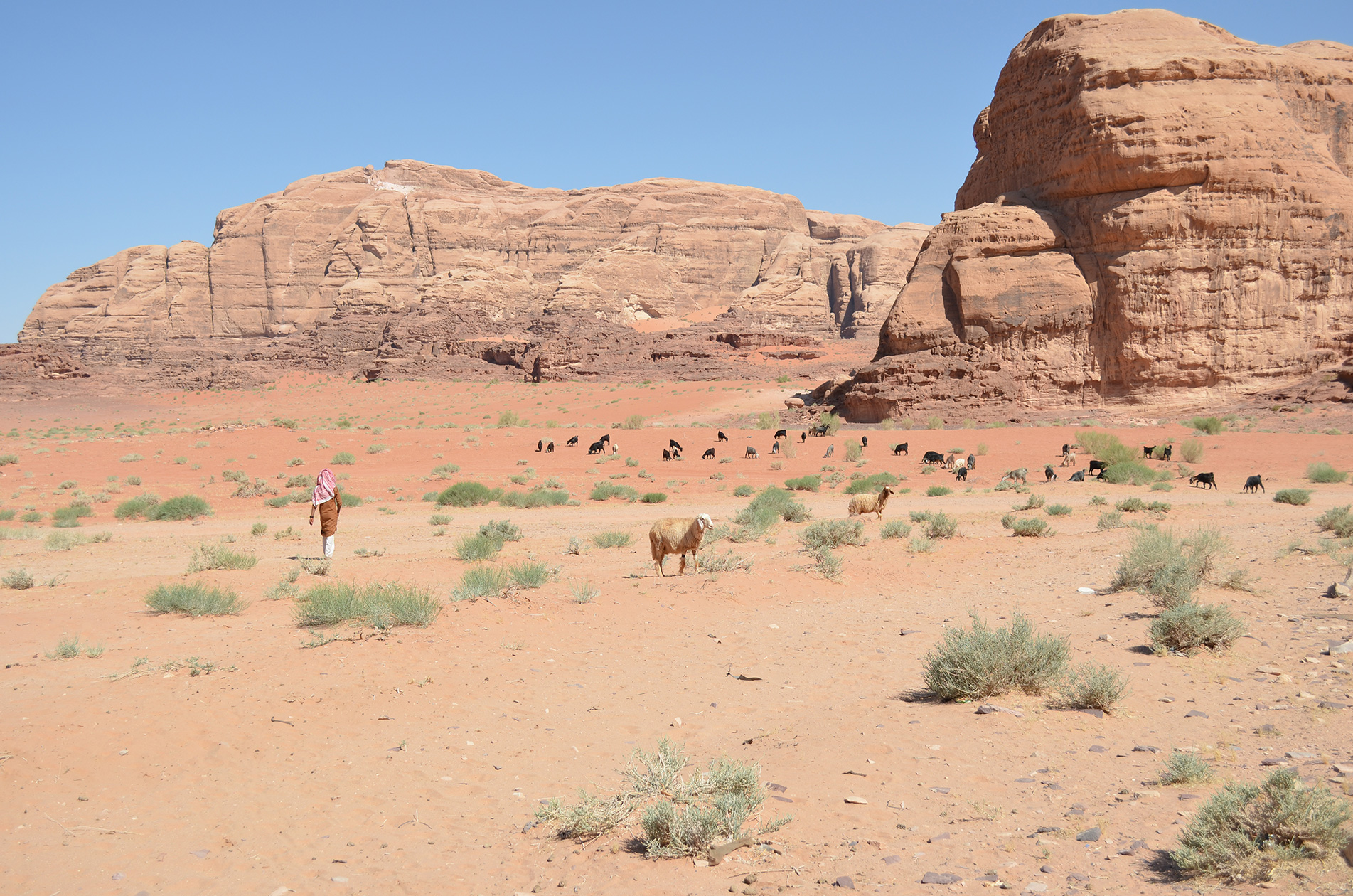Wadi Rum desert is since long time the land of beduin families, living there with their goats and sheep, a few camels, dogs and donkeys.
Until a recent past, goat hair brown tents were so many, moving according to seasons and graze.
But, since the eighties, growing tourism (a tourist costs more to feed than a goat, but brings also more money !), children going to school and the new taste for a all-furnished home (a just married bride refusing to live under the tent) slowly brought most families back to the village, which developped meantime.
A noticeable rarefaction of the volume of rainfalls, with a lowering of the spring time graze as a consequence (2012 is a specially dry winter, without grass and crops in desertic areas) made life still harder for breeding beduins (who receive very little help from government).
Last, the concrete permanent camps, bigger and bigger although perfectly illegal, are eating the space always deeper inside desert, pushing back beduin families always further from the village, where their children go to school, while being a true nuisance to them.
Presently, there are no more than a few beduin families living permanently in Wadi Rum desert.
But they are still there, these families, because they like this desert life, and it belongs also to us to help them, by all means, to preserve their way of life as long as possible.
How ? By a tourism respecting desert and beduin traditions, by meeting each other, you, westerners, curious of this life so far from yours, of this beduin culture still alive, and them, equally curious of your customs and habits, and so proud when showing you their world !
The tent at first, hand made by the mother, the new born baby goats and camels, the milk, freshly brought from goats and sheeps and kept cold in the skin bag, to be shaken afterwards during more than one hour until it turns into butter, plus this famous “leban”, basic in the beduin food !
Traditional coffee will be done on fire, at men’s side, while, at women’s, “arboud” (bread) will be cooked under ashes..
And we will drink tea, all together, beside the fireplace, at this quiet moment when shadows get longer..
When visiting these families for tea, or to spend the evening or why not the whole night, it will be for them an acknowledgment of their way of life, of its value, and of course a financial help, for feeding the animals.
Your pleasure to share a moment with them will also give them a little more energy to resist to the growing pressure of the “builders”, these cousins who apparently forgot their origins, getting their money by selling to tourists concrete blocks called bedouin camp !
